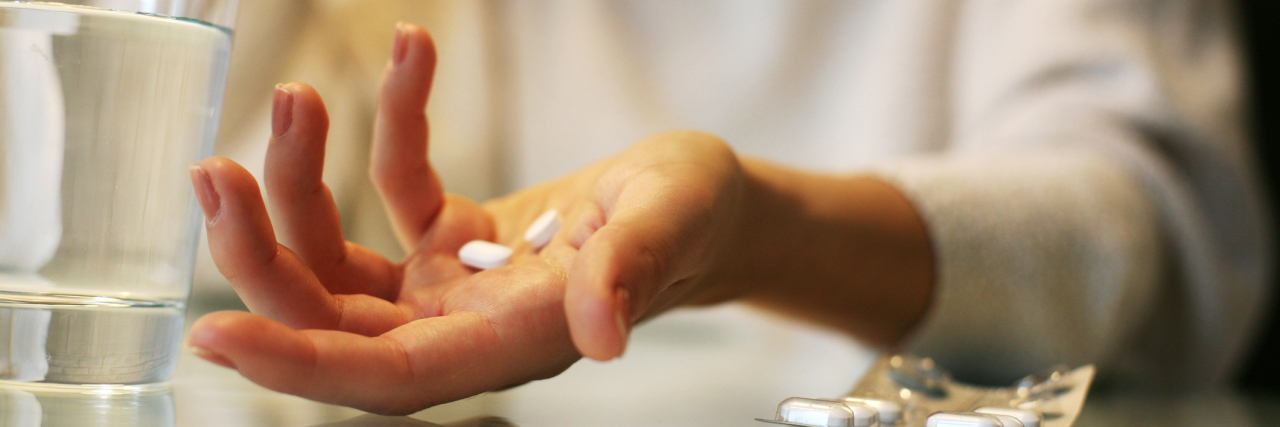4 Things I'm Thinking About After Realizing Medication Will Always Be Part of My Life
Having Crohn’s disease, bipolar disorder and social anxiety comes with a lifetime of check-ups, blood work, tests, therapy and maintenance medication. For years, I’ve taken medications as directed, ate a diet to alleviate Crohn’s symptoms and attended therapy on a regular basis. This routine has been going on for about nine years so it’s just become a part of my life. However, lately I’ve become more aware of the various ways this affects my daily life. Here are four realizations that as an adult, I’ve started to think about more and more.
• What is Bipolar disorder?
1. The Stigma Behind Psychiatric Drugs
Many people have told me over the years I’m just “high-strung” or a “neurotic” person. However, when my anxiety or bipolar symptoms aren’t under control, my friends and family don’t always realize that I can’t focus at work, I have extreme mood swings and can’t sleep at night because of racing thoughts and obsessing about what the next day will be like. I realize a lot of anxiety medications can be highly addictive, and oftentimes I’m told to just relax instead of taking them, but when I begin to not be able to function in my everyday life, these drugs become necessary and a couple of deep breaths and someone telling me to “just relax” won’t cut it. I know those close to me mean well, but their comments can make me feel ashamed that I sometimes rely on drugs.
2. The Cost of Certain Medications
For those of you who aren’t familiar with Crohn’s disease, there is an immunosuppressive drug that without insurance, can cost you around $1,000 a month. If your health insurance isn’t great, you may be able to qualify for a patient assistance program. But how can a person possibly afford this? I have decent insurance and I am on six other medications and oftentimes, I do get angry and resent people who don’t have to pay hundreds of dollars a year just to feel healthy and “normal,” let alone those who aren’t concerned with their health insurance plans.
3. Fear of the Long-Term Effects of Medications
I’ve been on the same medications for several years and I’m not sure if it’s my disease or the medications that have changed me (for both better and worse). When I started bipolar and anxiety medications in college, I couldn’t focus in class, had memory loss and felt like I couldn’t retain information while studying like I did as a straight-A student in high school. More and more frequently, I toy around with the idea of getting weaned off of some of them, just to see how I feel (under the supervision of a doctor, of course). What if I was just going through a tough time, since I was ending a relationship with my ex-fiancé during my diagnosis, and what if I don’t truly need every one of these meds? I know I definitely have severe anxiety issues, but I often question if regular use of these medications have changed me, and not for always for the better.
4. Feeling Different From Other People
Sometimes, my medications make me too drowsy to attend birthday parties or other get-togethers, and I have people in my life who are either very understanding or think I’m avoiding them. I try so hard to overcome the fear of going out to visit my friends, but I’m often too tired or feel withdrawn, not to mention I wouldn’t trust myself behind the wheel. I’ve lost touch with friends over the years and it breaks my heart. I hate being jealous or resentful, but I wish I could go back to the days where I didn’t have various alarms set on my phone to remind me to take my medications. I constantly get asked why I’m not drinking alcohol, and told it would help me relax, but I worry I will then be seen as a pill-popper if I try to calm down and fit in. But at the end of the day, I tell myself things could always be worse and this is who I am.
Thinkstock photo via Liderina.

